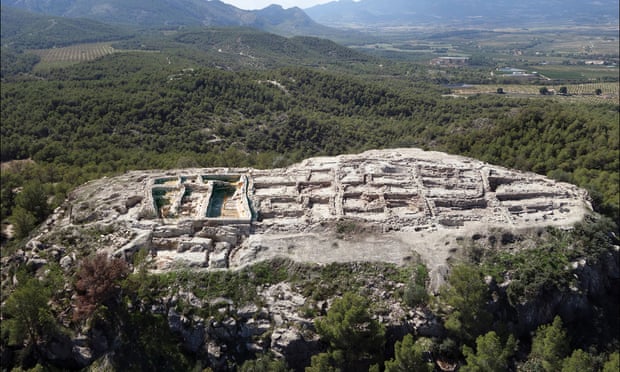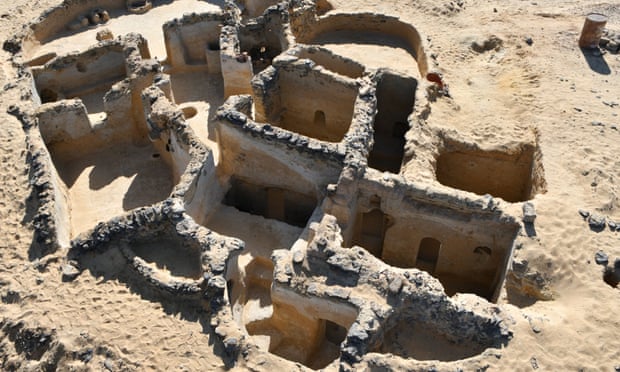-
• #502
Major losses across the world +10,000 years ago when polar ice caps retreated would have created countless Atlantis stories, not just from Plato. We are on the verge of another such event, no?
-
• #503
It would have generated countless flood stories, yes, but not necessarily Atlantis stories. The Atlantis myth has very specific aspects, at least as told by Plato, which have not permitted attaching it to just any old flood myth, one reason why the speculation has been going on for so long and has been so full of total bollocks. :)
-
• #504
If the Mediterranean and Black Seas were created from sea level rises via the straits of Gibraltar, then low lying cities in the region would have become submerged over time. That’s my view, Plato would have only related to local history not global events.
-
• #505
Cities on the endangered list..
-
• #506
Bloody hell that clip is annoying. The narration and sound effects nearly gave me a fit
-
• #507
I often say this, but I do think that we underestimate today how connected the ancient world was (quite possibly in large part because the conflict between Christianity and Islam cut off links between East and West much later). There were commodities like spices traded over huge distances, for instance. In Plato's case, there is a mysterious strand of Egyptian influence in some of his work. It is likely that Egypt was partly so powerful because it was connected both to Europe, what we now call the Middle East, and to the Indian sub-continent. It's all speculation, but I certainly wouldn't assume that Plato could have referred only to 'local history'.
As for the Mediterranean, that is thought to have formed more than 5 million years ago, so there is not likely to be too much human folklore left around that. There certainly will have been many sea level changes, submerging among other things cities like Pavlopetri, and it's likely that that will have generated stories, but again it's hard to connect this to an event like the purported sinking of Atlantis, which Plato explicitly claims was outside the Mediterranean, in a 'real ocean'.
-
• #508
I didn't get around to watching it earlier, but yes, it's trash. I'm with you on the sound effects. I've never understood why this constant whoosh-bang stuff is considered essential, especially in action movies, when it doesn't represent any naturally-occurring sounds, and why audiences seemingly just accept it.
Videos like this convey very little information. Nowadays they're just made with some annoying computer graphics and very few substantial points.
I visited Akrotiri in 1996 and it's definitely a very interesting place, and one that I've read about intermittently since then. What's been excavated is undoubtedly only a small part of its original extent ...

... but if I recall correctly, nothing has so far been found in the caldera, and I really didn't find the images in the video convincing. I don't really expect anything to be found there, because it seems that the caldera was enlarged in the eruption and whatever fell into it would have been destroyed completely. The only reason why we have such interesting remains at Akrotiri, or whatever it was called 4,000 years ago, is because it was initially buried under 60 metres of volcanic matter, which protected that of it which remained on land from the main force of the eruption. While there's little doubt that there would have been a harbour, there's equally very little chance of any of it remaining. I mean, people will undoubtedly be able to keep excavating there for decades to come, but because the remains lie buried so deep, who knows what they'll find? I always say that I think we tend to underestimate the size of ancient cities (it's pretty overwhelming archaeologically to excavate something even of the size of a village, as has so far happened in Akrotiri), but because of the industry around 'Atlantis', here it's almost the other way around. :) It may well have been huge, but it'll be a long time before we can say with any certainty how much of it could still be excavated today. It might well become like an archaeological open-cast mine if they carry on extending the scope.
But to again say this on 'Atlantis'--this is probably a creation of Plato's, as with his other myths. Here, he tells clearly of a place beyond the Pillars of Hercules. Of course, you can ignore that and claim that the myth is inspired by/put together from various different sources, which I don't doubt for a second, and that Santorini is a very important source, and blah and blah, but what is clear is that *it's not Atlantis, because Atlantis is actually defined by what's in the myth, and *whisper it, it may not *actually* have existed. :)
Anyway, whatever the truth of all that may be, Akrotiri is always worth a look:
https://en.wikipedia.org/wiki/Akrotiri_(prehistoric_city)
The only thing that prevents it from being more of an archaeological sensation is the absence so far of any written material. It's very likely that people of that culture had writing, but as they evidently weren't surprised by the eruption and managed to leave the island before it happened, they may well have taken written records with them. (For that same reason, their civilisation didn't 'vanish', as is often claimed. They simply went to live in other places and undoubtedly carried on their civilisation there.)
-
• #509
This is quite amazing. I remember visiting Santorini as a 9 year old around 1990, totally in awe of the fact that it was one large volcano, arriving by small sail boat in a heavy storm, going up and down the endless stairs and my parents telling/fooling me that the center of the archipelago was going all the way to a depth of 10,000 meters. But to my surprise, I cannot recall visiting this excavated city of Akrotiri. Or perhaps it wasn't open to the public in those days? Still brings back memories, so thanks for posting @mister_manoeuvres, even though that clip can only be viewed in mute :)
-
• #510
But to my surprise, I cannot recall visiting this excavated city of Akrotiri. Or perhaps it wasn't open to the public in those days?
It's somewhat off the beaten track, on Thera's south-west arm. We stayed in Akrotiri and specifically wanted to visit it, but most people just stay in Phera, Monolithos, and/or wander along the northern cliffs. There certainly weren't many tourists when we were there, even though it was the height of summer, maybe another five people or so on Red Beach. (From looking at Santorini-related sites just now, I can tell that has changed. It now seems to be marketed quite heavily.)
-
• #511
Here's another study on the purported disappearance of the Neanderthals:
I still haven't seen anything that convinces me that there was any such disappearance beyond people mixing. My speculative hypothesis is roughly like this: Neanderthals were descendants of humans who migrated north of the Mediterranean a long time before anyone else. Europe was at that time still quite inhospitable--cold, not a lot of food to gather, and lots of large animals with whom humans would have been in conflict. By all accounts, except for Italy and the southern Iberian peninsula, the population in Europe always remained small. I think that populations would have been huge in Northern Africa for thousands of years, but when the climate there changed, bringing desertification, and the land could no longer support so many people, a period of migration started that brought increased numbers to Europe when little migration had occurred for a long time.
No doubt there would have been conflict between Neanderthals and the newcomers, but the much larger number of newcomers would simply have absorbed many Neanderthals through marriage and partnership. (I don't like it when people talk about 'interbreeding', although of course I have no idea what people's customs were at the time.) End of simple story. There's so much sensationalism still attached to Neanderthals based on the sensation of when fossils were first discovered, and I would assume that it was all a lot more boring.
Conflict--absolutely, yes, but not to 'extinction'. There simply were never that many of them and the old and new populations mixed.
-
• #512
This is hugely significant for the reading of ancient documents:
It's been in the works for years and I've posted about it before, but it's really exciting for (what's left of) the Herculaneum scrolls, for instance, or indeed any future finds of ancient libraries preserved by volcanic eruptions. Well, you can always hope.
-
• #513
This looks like an incredibly interesting site (and wider context):

-
• #514
They have been releasing old 'Time Team's on youtube. I'm hooked all over again.
-
• #515
I always enjoy seeing news about the Antikythera Mechanism.

It's still one of the most fascinating things ever found. I'm sure that many inventions like this were made. One reason for their lack of proliferation, apart from the obvious difficulty in making them, would have been that they were jealously guarded because they conveyed advantages, such as military or strategic ones, or simply advantages for trade, for instance in planning voyages.
Reconstructing it must be a completely absorbing task. I couldn't even imagine how to begin it.
-
• #517
That's fascinating. And to imagine that 500/600 years later the middle ages began. Some powerful people probably did not want such technology to be available
conspiracy thread
-
• #518
Cheers, ten episodes of that so far. Will watch.
-
• #519
It's brilliant, there are even episodes dedicated to fabricating the hand tools used throughout the project... Fantastic content, fascinating project, I really want one...
-
• #520
An interesting excavation in Egypt. The layout of the building in the picture looks intriguing:
-
• #521
Good (and terrifying) info on Pompeii.
-
• #522
Honestly, this problem of private excavations is really getting out of hand.
-
• #523
What's always interesting in Mesoamerica and South America is when they find something that predates the best-known cultures. Many of their monuments will have been erected on top of remnants of older cultures, and while it's not impossible to excavate the many layers of a place in continuous settlement for millennia, it's still quite difficult, as Schliemann's experience at Troia proved in the case of applied dilettantism, and expensive, which often affects non-dilettantes.
-
• #524
Here's an interesting pirate story:
 o_skate_love_o
o_skate_love_o Oliver Schick
Oliver Schick damskodonny
damskodonny spotter
spotter
One of many, many theories. :)
Obviously, the Mediterranean cataclysm will have lived on in folk memory for a long time, but it contradicts so many aspects of Plato's version of the Atlantis story that I don't consider this a candidate for explaining the Atlantis myth in particular. I know you propose it merely as the origin of that story, but I don't think it is even that. For starters, it's clearly not outside the Pillars of Hercules. Again, ancient sources have so many flood myths:
https://en.wikipedia.org/wiki/List_of_flood_myths